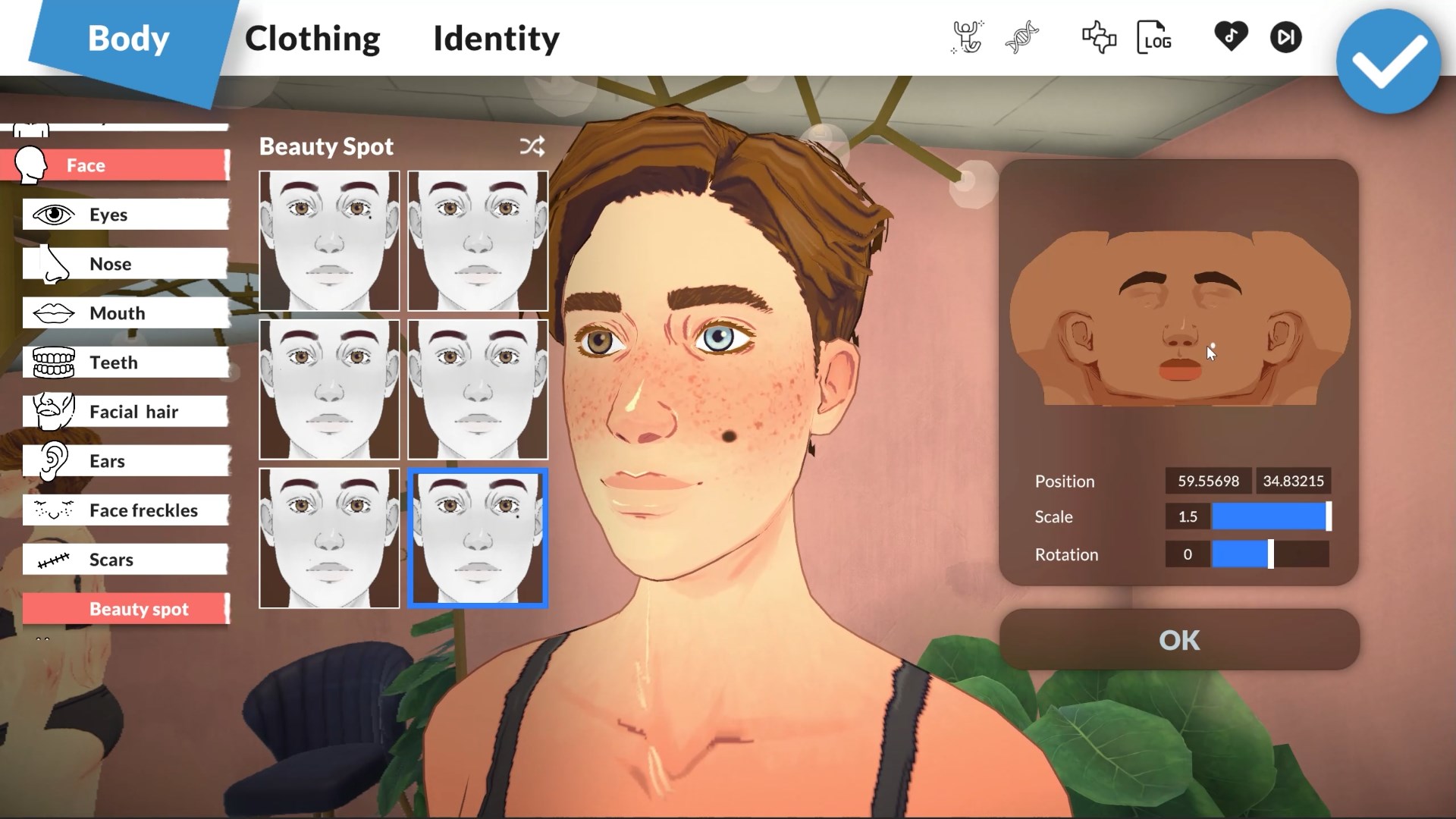The Sims competitor Paralives shows off its highly flexible character creator
There's some impressive customization on display, like freehand tattoo placement. And hey, body hair!

I'm keeping a close eye on Paralives, which could wind up being a competitor to the uncontested life simulation juggernaut that is The Sims 4. Paralives is still in prealpha, with no announced release date, but the Paralives team gives us occasional glimpses at some of its features in development, like housebuilding, which we saw back in June.
This week Paralives showed off more of its character creation tools, which look impressively extensive and flexible. Starting with a number of body sliders to adjust the size of just about anything from head to toe (though there aren't actually toe sliders), we move on to a few body hair options (something The Sims 4 doesn't have without mods) and tattoos, which you can scale, rotate, and drag around the character's body until you're happy with the placement. Pretty cool.
Choosing your Parafolk's height is as easy as adjusting another slider, and there are lots of options for your character's face, including beauty spots that, similar to tattoos, you can size and move around until you've found the perfect placement. There are also a handful of premade skin tones (the video says the studio will add more) and tools to create your own from a palette and color wheel.
You can even give your character heterochromia, which means they have two different colored irises. I assume a lot of players will go for this option because, frankly, it looks really cool.
I'm eager to see more of Paralives in the near future, and I hope I don't have to wait too much longer to actually play it. The art style is charming as heck, and even the few animations shown in the character creator look great, too. And frankly, it's high time The Sims 4 got a bit of competition.
The biggest gaming news, reviews and hardware deals
Keep up to date with the most important stories and the best deals, as picked by the PC Gamer team.

Chris started playing PC games in the 1980s, started writing about them in the early 2000s, and (finally) started getting paid to write about them in the late 2000s. Following a few years as a regular freelancer, PC Gamer hired him in 2014, probably so he'd stop emailing them asking for more work. Chris has a love-hate relationship with survival games and an unhealthy fascination with the inner lives of NPCs. He's also a fan of offbeat simulation games, mods, and ignoring storylines in RPGs so he can make up his own.

